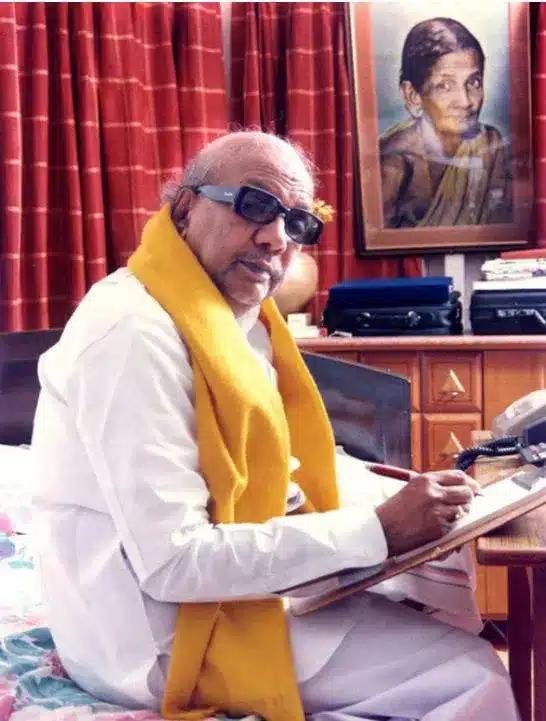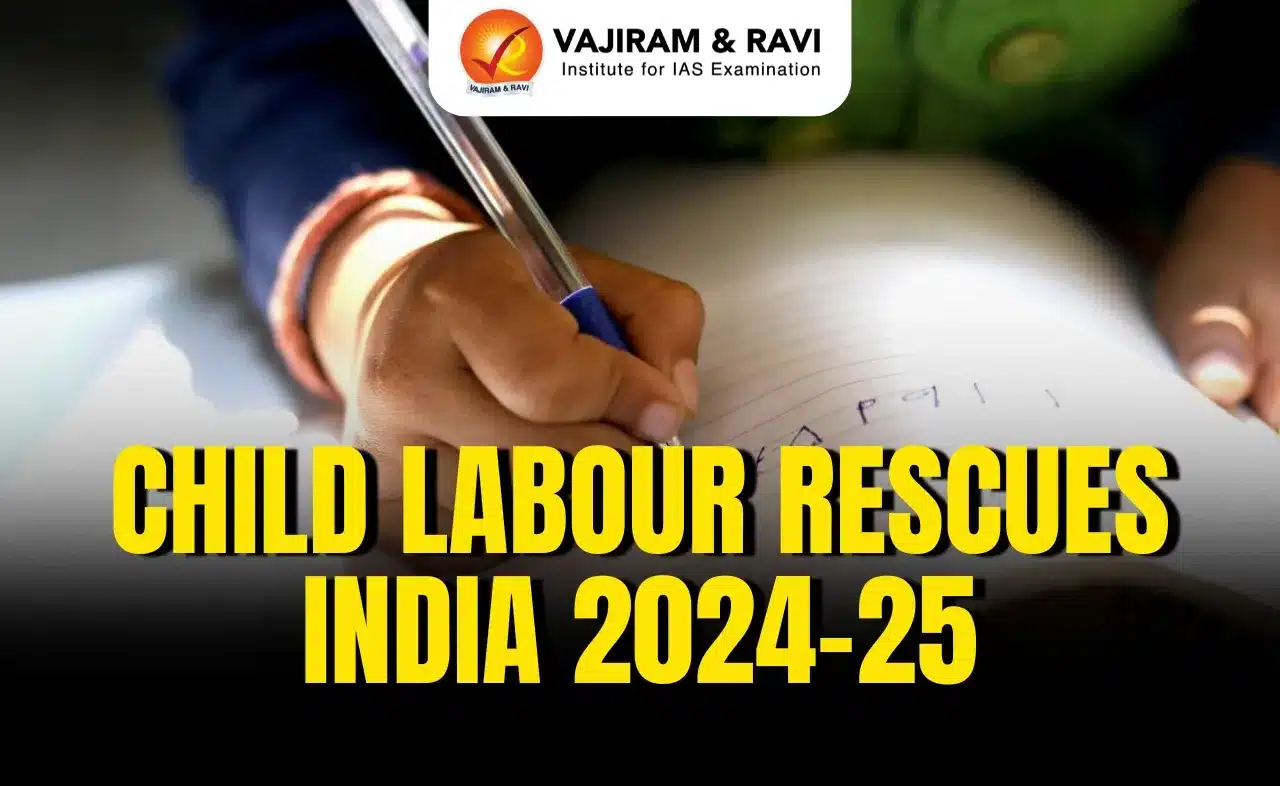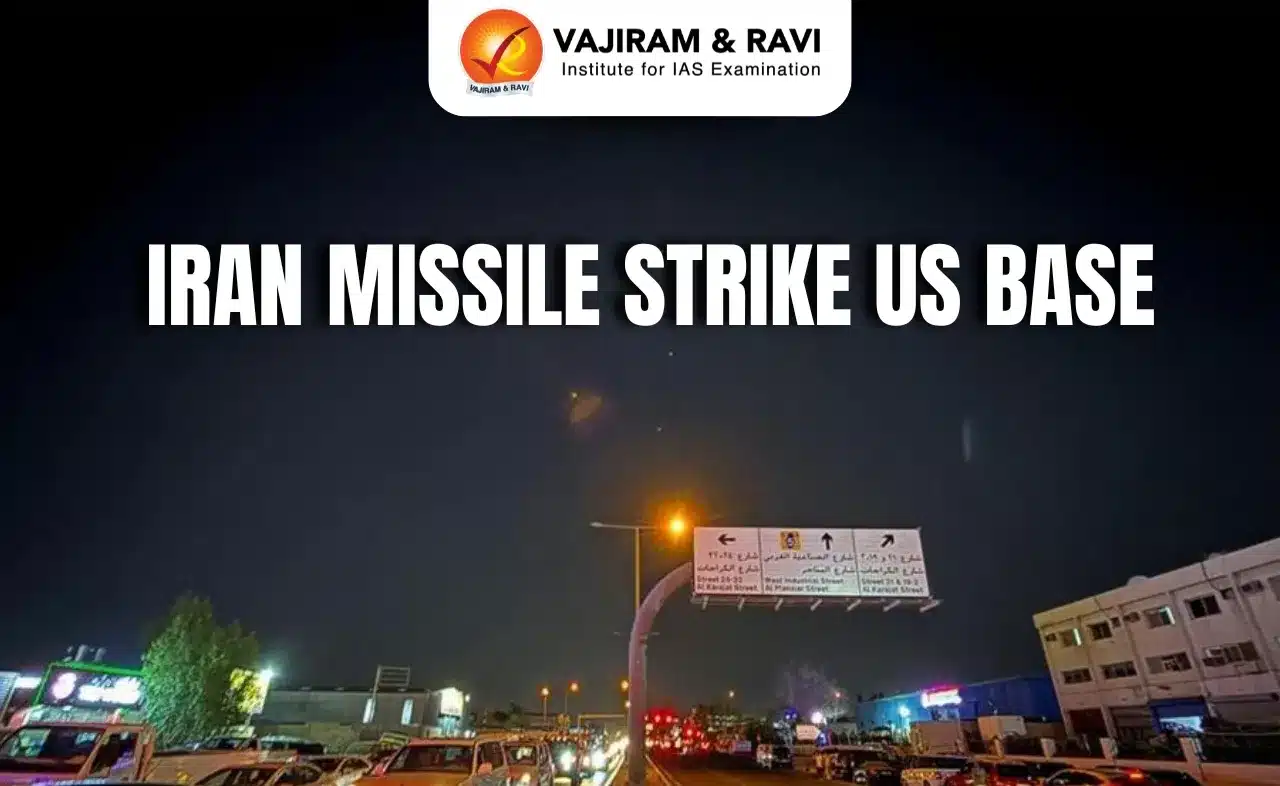What’s in today’s article?
- Why in News?
- INS Arihant
- 2nd nuclear missile submarine INS Arighaat
Why in News?
The Tamil Nadu government has announced that the collected works of former Chief Minister M Karunanidhi would be “nationalised” — making them freely available for the public to publish, translate and adapt.
Key features of Copyright Act, 1957
- Background – about Copyright
- Copyright is an intellectual property right that protects the expression of original works such as literature, music, art, films, and sound recordings under Indian law, specifically Section 13 of the Copyright Act, 1957.
- Rather than safeguarding ideas themselves, copyright law protects the specific manifestation of those ideas, like books or computer programs.
- Under Section 14 of the Act, copyright grants a set of exclusive rights to the owner, including the rights to adapt, reproduce, publish, translate, and communicate the work to the public.
- These rights can only be exercised by the copyright owner or someone authorized by them.
- While copyright registration records the work in the Copyright Register, it does not create the rights themselves.
- Key features
- Exclusive Rights
- The Act grants creators of original literary, dramatic, musical, and artistic works exclusive rights to reproduce, distribute, perform, translate, and adapt their works.
- Duration of Protection
- Copyright protection lasts for the lifetime of the author plus 60 years after their death.
- For works like photographs, sound recordings, and films, the duration is 60 years from the year of publication.
- Assignment of Rights
- The copyright owner can assign their rights wholly or partially to another person or entity.
- This allows the owner to transfer rights for a specific period, territory, or purpose.
- Public Domain
- After the copyright term expires, the work enters the public domain, making it freely available for use without the need for permission.
- Moral Rights
- The Act also recognizes the author’s moral rights, which include the right to claim authorship of the work and the right to object to any distortion, mutilation, or modification of the work that could harm the author’s reputation.
- Infringement and Remedies
- The Act provides remedies for copyright infringement, including civil remedies like injunctions and damages, as well as criminal penalties like fines and imprisonment for serious violations.
- Fair Use Doctrine
- Certain uses of copyrighted material, such as for criticism, review, research, or education, are considered “fair use” and do not require permission from the copyright owner.
- Compulsory Licensing
- In certain cases, the Act allows for compulsory licensing, where the government can permit the use of a copyrighted work without the owner’s consent, typically for public interest purposes.
- Exclusive Rights
Copyright laws and Nationalisation of copyright
- Copyright laws
- Under the Copyright Act, 1957, an author is granted several legal rights, including the ability to reproduce, issue copies, perform, adapt, or translate their work.
- After the author’s death, these rights are passed on to their legal heirs.
- Section 18 of the Act allows the copyright owner to assign their rights, either wholly or partially, to another party in exchange for compensation.
- Copyright protection for literary, dramatic, musical, or artistic works lasts for 60 years after the author’s death.
- Once this period expires, the work enters the public domain and can be freely used without needing permission from the previous copyright owners.
- Nationalisation of copyright in Tamilnadu
- In 2001, the Tamil Nadu government created the Tamil Virtual Academy (TVA) to offer online education in the Tamil language.
- The TVA works with the legal heirs of original copyright owners to transfer the rights of specific works to the government.
- These nationalized works are then placed in the public domain and made available on the TVA’s free commons website, allowing anyone to copy, modify, distribute, and use the works for commercial purposes without needing permission.
- To date, the Tamil Nadu government has nationalized the works of 179 Tamil scholars and paid a total of Rs 14.42 crore in royalties to their legal heirs.
Case of Ambedkar’s works
- Prakash Ambedkar, Dr. B. R. Ambedkar’s grandson, granted the copyright for Dr. Ambedkar’s works to the Maharashtra government in the 1960s.
- The state government then established a committee in 1976, which published the first volume of Dr. Ambedkar’s works in 1979 as part of a 22-volume series.
- In 2016, Prakash Ambedkar transferred the copyright to the Nagpur-based Symbiosis Centre, which now holds the rights to most of Dr. Ambedkar’s works and manages their translation and digitization.
- These works are available both in print and online. The Maharashtra government retains rights to a few books, which are distributed through specific institutions in Pune.
- In 2018, the Maharashtra government requested the removal of Dr. Ambedkar’s works from the Centre, triggering the grant of copyright.
Q.1. What does the nationalisation of Karunanidhi’s works entail?
The nationalisation of Karunanidhi’s works by the Tamil Nadu government will make his literary contributions freely accessible to the public, allowing anyone to publish, translate, and adapt them without permission.
Q.2. How does Tamil Nadu’s nationalisation of copyright works benefit the public?
Tamil Nadu’s nationalisation of copyright works benefits the public by preserving cultural heritage, promoting access to important literary works, and encouraging educational and creative use of these resources without legal barriers.
Source: Works of late leader M. Karunanidhi to be nationalised | iPleaders | European Commission
Last updated on June, 2025
→ UPSC Notification 2025 was released on 22nd January 2025.
→ UPSC Prelims Result 2025 is out now for the CSE held on 25 May 2025.
→ UPSC Prelims Question Paper 2025 and Unofficial Prelims Answer Key 2025 are available now.
→ UPSC Calendar 2026 is released on 15th May, 2025.
→ The UPSC Vacancy 2025 were released 1129, out of which 979 were for UPSC CSE and remaining 150 are for UPSC IFoS.
→ UPSC Mains 2025 will be conducted on 22nd August 2025.
→ UPSC Prelims 2026 will be conducted on 24th May, 2026 & UPSC Mains 2026 will be conducted on 21st August 2026.
→ The UPSC Selection Process is of 3 stages-Prelims, Mains and Interview.
→ UPSC Result 2024 is released with latest UPSC Marksheet 2024. Check Now!
→ UPSC Toppers List 2024 is released now. Shakti Dubey is UPSC AIR 1 2024 Topper.
→ Also check Best IAS Coaching in Delhi













